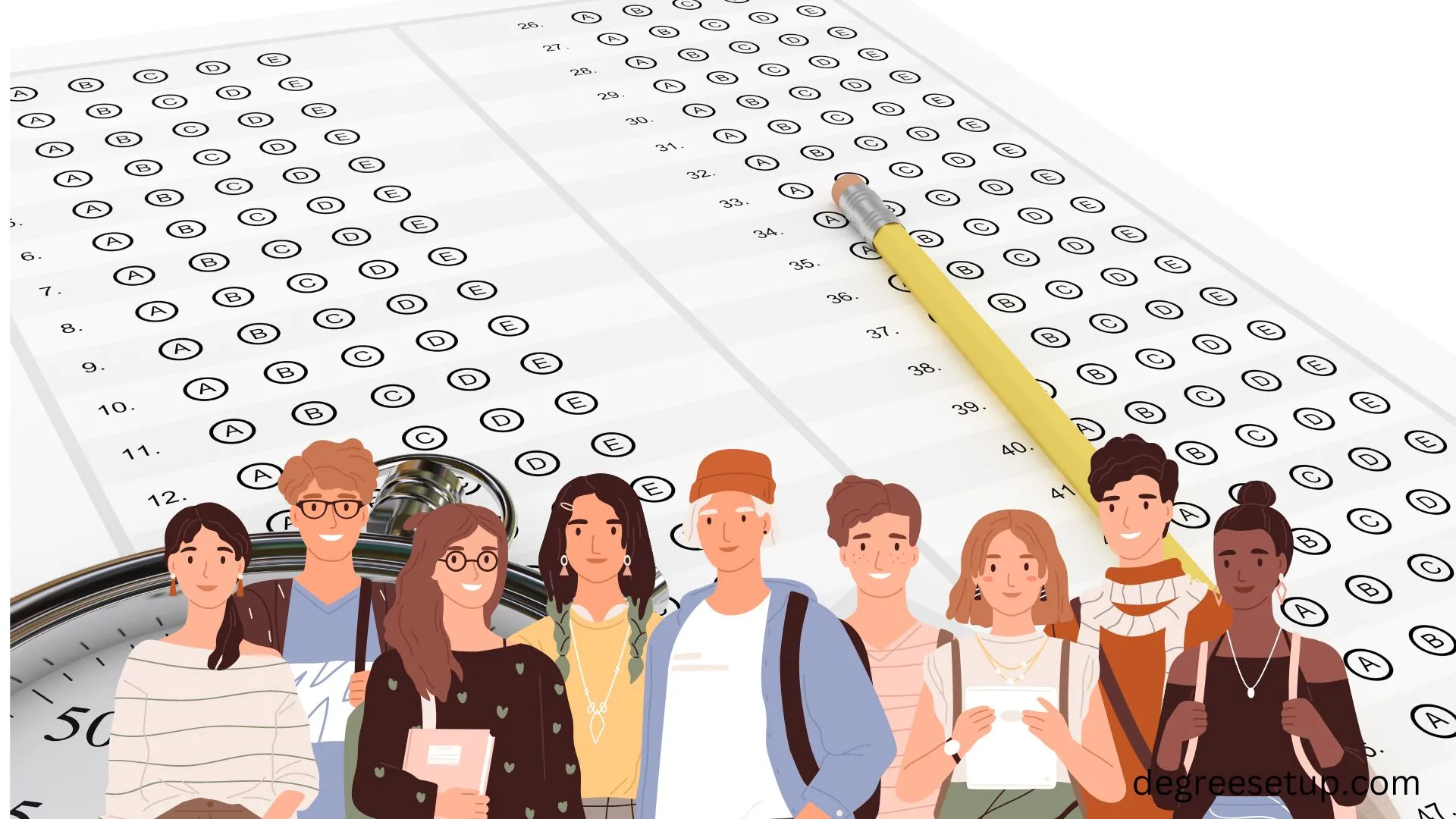
Almost 80-90 percent of students give one-day exams at least once in their lifetime. But many new students don’t know how to tackle one day’s exams. Because in these exams everyone gets one chance to prove themselves and if they fail they must wait a whole year.
One-day exams are organized by various government, semi-government, private agencies, and exam boards. These types of exams are generally taken on OMR sheets due to the vast number of exam candidates, and these exams occur once a year and are handled by several boards in India and most parts of the world.
The most common one-day exams include preliminary exams of UPSC and state pcs and entrance exams like NEET, JEE-Mains, and Advance.
So after doing some analysis, I made this ultimate guide you follow. You will surely get success. After reading some blogs and watching videos of some experts, I made this list, which I will link below.
So read carefully if this is your first time giving these types of exams.
Read – Do Examiners Check Word Count On Answer Sheets?
1. Start gathering materials.
The first thing you need to clear any one-day exam, such as UPSC prelims, NEET, and JEE, is gathering or buying suitable study materials. Don’t follow others and buy a book related to your exam.
You can look at several videos with booklists about a particular exam.
For example: Buy M.laxmikant book for polity after studying NCERT. This way, you get better and deep knowledge about the subject.
You have to invest money in notes other than buying books, but instead of buying them, you need to make your messages using A4 sheets.
2. Analysis of the syllabus.
The syllabus of any exam is the most crucial document as most people ignore it, and they read it carefully. But if you analyze the syllabus carefully, you will get a clear idea about what to study and leave.
To get the syllabus, visit the official website of a board from where you are filling out the form and downloading it. Also, print it out, as seeing it will be more convenient.
3. Study what makes you comfortable.
Suppose you find some subjects or topics hard during the early phase of your preparation. You can study those things which are easier to understand for you.
It doesn’t mean that you have to skip all the hard things. Instead of studying one subject for three hours, you can learn three issues for one hour each.
Doing this, you won’t get bored, and things will become much more enjoyable. After some time, you can increase the time duration.
4. Make a strategy.
No one can win anything without a proper strategy, which applies to exams. Now I know that no one can complete the 100% given exam syllabus. But a good strategy can help you cover 70-80% of the syllabus.
Here’s the strategy blueprint to cover the syllabus to crack any exam.
- Analyses the syllabus.
- Know your weak points.
- Work on your weak points by solving various questions, such as MCQs.
- Revise every week.
- Make concise notes.
These are some of the essential tips that you can follow.
5. Memorize the essential dates and numbers.
In almost every one-day exam, the questions are asked in MCQ format, and 20-30% are directly factual.
These factual questions can include dates of important events, numbers related to any government scheme, or constant numbers.
So you have to memorize them carefully to avoid losing your marks in the exam.
6. Don’t forget to solve reasoning questions.
Regarding recruitment exams like UPSC and state pcs, most students only focus on general studies and subjects with weightage in overall marks.
But if you want to clear any one-day exam, you have to work on every subject. That’s why I am talking about solving reasoning and mental ability questions. However, they do add in the marks and affect the merit list.
But if you are weak in it, this may become the factor in failing out.
7. Revise
Revision is the key to your success. Every time you revise or solve a question, you go one step ahead to clear the exam.
But instead of revising the whole chapter at a time, you can split it into small topics. And once you complete any topic or you can revise.
For better results, keep this rule in your mind for revision; you will never forget anything. Just revise after the following days.
- After completing a topic.
- After 24 hours.
- After 1 week.
- After 15 days.
- And lastly, after 1 month.
Follow this five-step process, and you will never forget anything during exams.
8. Solve As many MCQ’s you can.
As you all have heard, “practice makes you man perfect,“ so solving questions after revisions make you better for the exam you are preparing for.
It’s also better to make mistakes when you solve questions for the first time, as this will tell you where you went wrong and your weak points.
For solving MCQs, there are thousands of websites on the internet, and also you can see any live videos and solve the question while interacting with other youtube channels for free.
9. Give mock tests.
Before giving the main exams, try to sit at least 5-6 mock test exams. These mock tests are affordable and cost 200-500 Rs per exam.
Also, ensure you avoid giving mock at home because people are comfortable at home. So instead of doing that, you can visit any nearest coaching centers and apply for a mock test. They also publish the results too.
Analyze the results look at the mistakes, and try to fix them by studying what you have left.
10. Take less stress and don’t study before the exam.
If you have covered 70-80% of the syllabus, that is enough to crack any exam. Hardly all aspirants complete 100% given syllabus.
But when you open any topic, you will feel that something you have not studied or some of the topics you have forgotten.
This mostly happens the few days before the exam when people open their books, leading to stress.
You have to study smart and do some of the things given below by you won’t have stress.
- Revise only the notes 10-15 days before the exam.
- Don’t study from the book.
- Don’t open any new books or try to study new topics.
- Make sure 24 hours before the exam don’t study anything; you can do other activities such as watching the news, meditation, or listening to music. Just do what make you calm.


